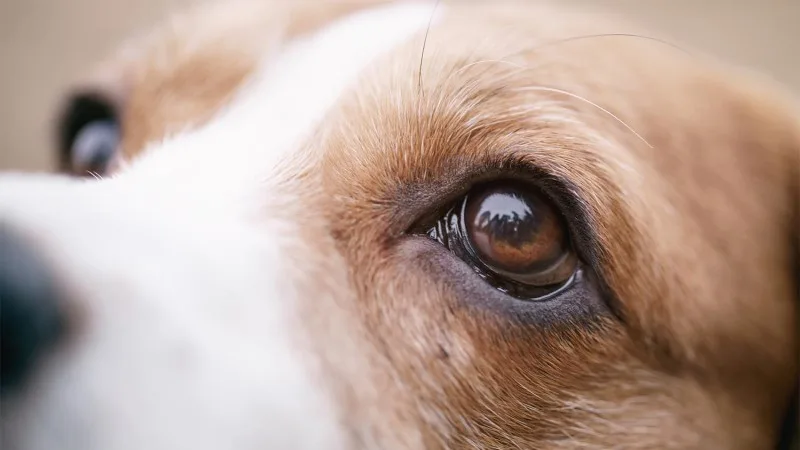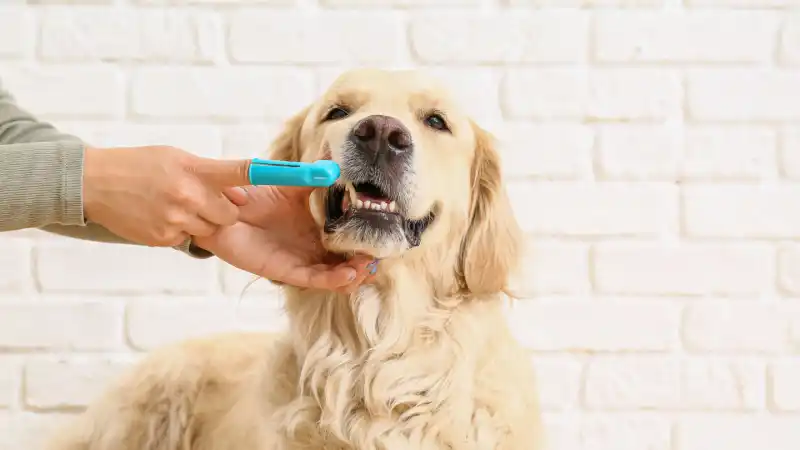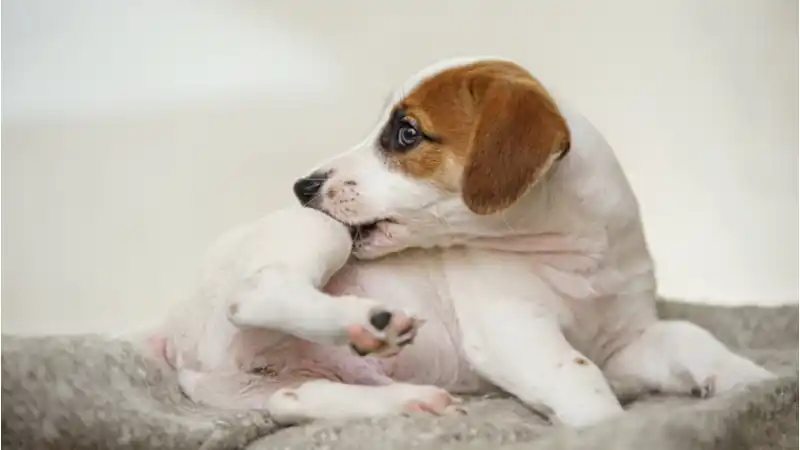Eye Problems in Dogs
Common dog eye problems, such as pink eye, are highly treatable. Learn what they are, how to treat & when to see a veterinary ophthalmologist for eye issues.

It’s never easy when your dog begins to experience health problems as a result of their age, but recognizing the signs early on can significantly reduce the chances of such issues becoming more serious concerns. But when it comes to the factors that could be causing poor vision or loss of sight, it’s not just older dogs that we should be concerned about -- there are a number of ophthalmic conditions that can occur at any time in a dog's life. What's more, genetic blindness and other eye health issues can affect all breeds of dog.
Here are some of the most common eye problems that occur in canines, along with some helpful hints on what course of action to take. Of course, if the eye health challenges you face with your dog are serious enough, you may want to consider getting the opinion of a veterinary ophthalmologist. Before we go down that road, let's take a look at some problems that cause poor vision in dogs.
1. Pink Eye
Many dog owners don’t know that their furry friends can get conjunctivitis (the medical name for pink eye), but it is one of the most common eye problems in dogs. Similar to humans, symptoms of dog pink eye include:
Eye redness
Inflammation of the eye and the surrounding soft tissue
Gooey eye mucus discharge
If your dog has pink eye caused by a bacterial infection, they will need to see a vet and receive antibiotic eye drops to resolve the infection. Dogs can also get viral pink eye, known as Adenovirus, the samevirus that causes pink eye in humans. Your veterinarian can walk you through the steps to relieve your dog until the viral pink eye clears up, but it is imperative that you take the proper precautions to keep this type of pink eye under control, as it could spread to every member of the household, including adults and children!
In some cases, however, pink eye can be brought on by an allergic reaction to pollen, cigarette smoke, or other irritants, which will require a saline eye wash to flush out the infection.
2. Damaged Cornea
Just like humans, dogs occasionally get something in their eye. Grass and dirt are common culprits, especially if your dog loves to play outside. Damage to the cornea can occur when your pup tries to alleviate irritation by scratching their eyes with their paws. Signs that your dog has a damaged cornea, or a corneal ulcer include:
Eye redness
Excessive tearing
Pawing at the affected eye
If you suspect your dog has damaged their cornea, they should be taken to the vet as soon as possible. Your veterinarian will be able to evaluate the eye injury and help prevent future infection.

Every Dog and Cat Deserves the Pet Insurance of Champions
Get prize-winning care for your pets.
3. Dry Eye
Also known as keratoconjunctivitis sicca, dry eye in dogs occurs when the tear ducts aren’t producing enough lubrication. This makes it difficult for the canine eye to naturally eliminate any dust and debris, causing irritation. If not properly treated, dry eye in dogs can lead to scratches to various parts of the eye anatomy and even corneal ulcers.
Signs that your pup may be suffering from canine dry eye include:
Excessive blinking
Eye redness
Squinting
Pawing at the eyes
The solution to dry eye is often simple. If your dog is displaying any of the above signs, make an appointment with your veterinarian and ask if artificial tears or saline drops can help.
4. Lump on the Eyelid
Growths or lumps on the eyelid are one of the most recognizable eye conditions that dogs experience. While these usually won’t bother your pup, all lumps should be checked by a veterinarian. Your vet may choose to do a biopsy or a fine needle aspirate, so they can review the tissue under a microscope to determine whether the lump is cancerous and whether it should be removed.
5. Glaucoma
When fluid doesn’t properly drain from your dog’s eyes, it can cause excessive pressure in, around, and behind the eye and ocular cavity, which can lead to canine glaucoma. This eye condition can leave your pup in pain and even cause blindness if left untreated.
Some of the symptoms of glaucoma in dogs include:
Eye tearing
Redness
Cloudiness over the pupil, iris, and/or white of the eye
Dilated pupils
Eye bulging
The good news is that the symptoms of canine glaucoma can be alleviated with an ophthalmic solution and other medication. In advanced cases, your vet may recommend surgery for canine glaucoma, but the procedure is a relatively simple one and recovery time is minimal.
In some cases, your dog's regular doctor may believe they have an advanced case of glaucoma and refer you to a veterinary ophthalmologist. Don’t assume the worst. Keep in mind that this type of veterinarian knows more about dog eyes than anyone, and that means a quicker resolution and recovery for your furry friend.
6. Cataracts
Cataracts are a common issue for senior dogs. Depending on the severity, dog cataracts may affect your pup’s eyesight and even lead to blindness. There are a number of signs to indicate canine cataracts, including:
Cloudy eyes
Eye inflammation
Irritation in and around the eyes
Adopting new habits due to sight loss
While some dog eye medications can alleviate eye inflammation in dogs with cataracts, only surgery can fix the problem over the long term. Fortunately, most cataracts are small and only partially affect a dog’s vision.
Visit Your Vet to Resolve Common Dog Eye Problems and Poor Vision in Dogs
It’s important to "keep an eye out" for signs of eye damage or discomfort and to get ahead of any developing eye conditions before they worsen. Poor eye health and loss of sight can be a sign of underlying health issues, so it’s always best to bring your concerns to a vet right away.
Dog pet insurance can also provide peace of mind if your canine companion suffers from common vision difficulties or eye diseases. AKC Pet Insurance (underwritten by Independence American Insurance Company) offers coverage for eye disorders through its Hereditary and Chronic Conditions Coverage.

Every Dog and Cat Deserves the Pet Insurance of Champions
Get prize-winning care for your pets.



